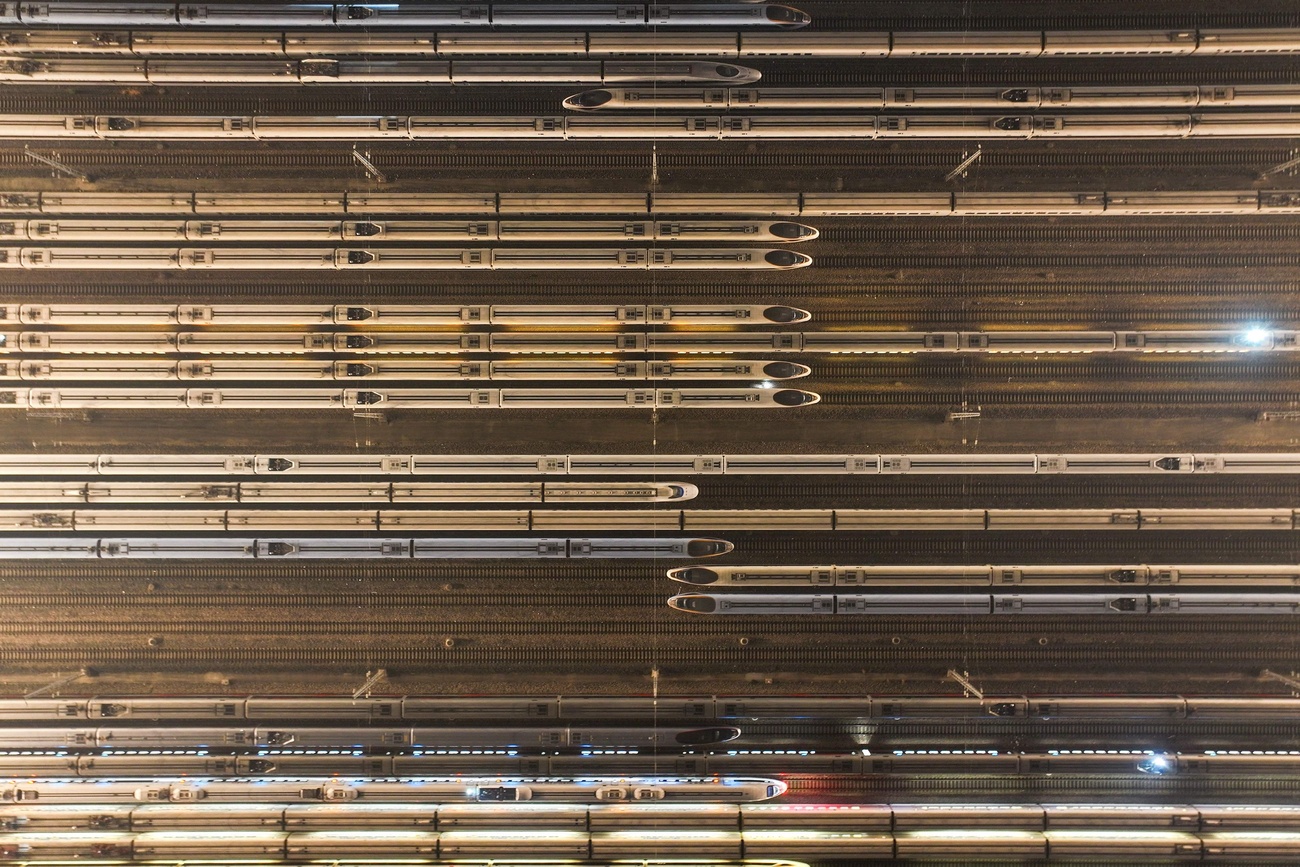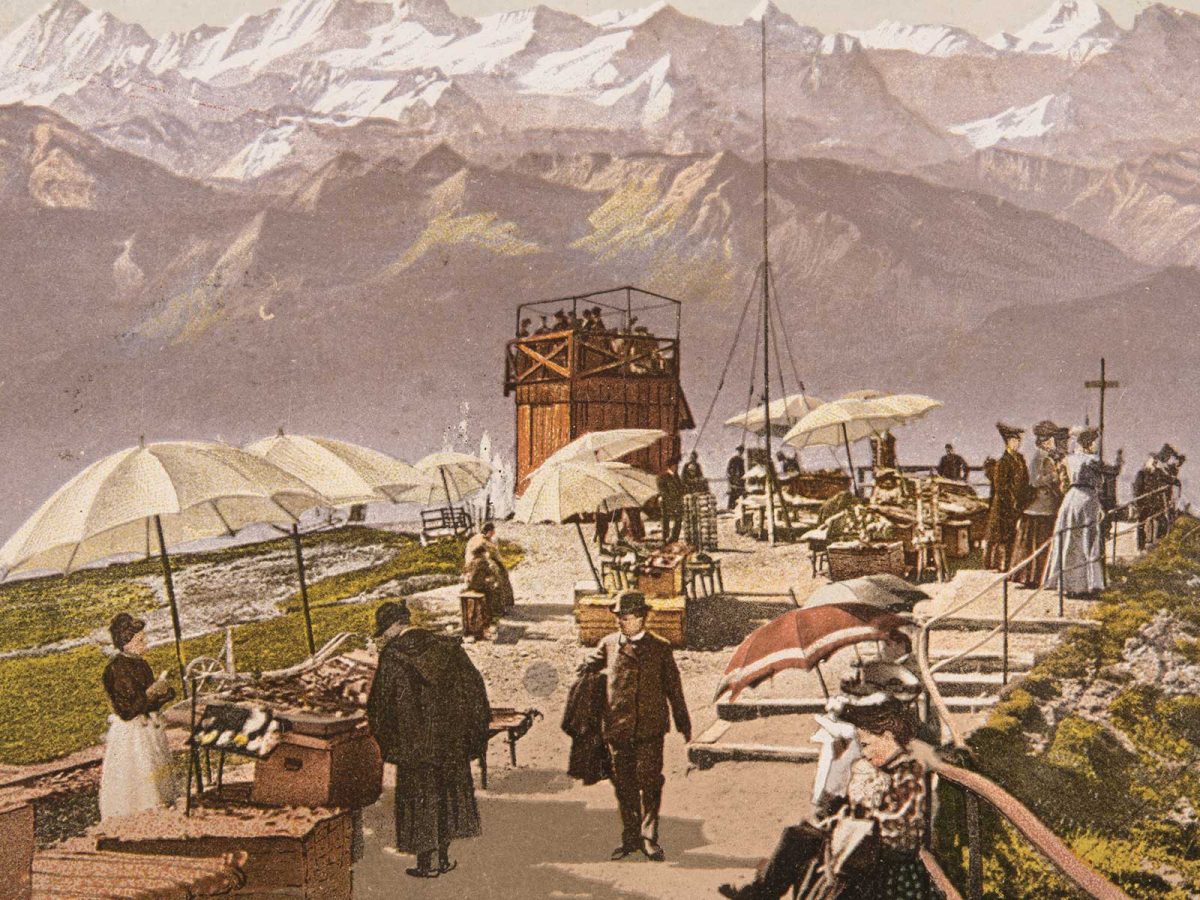
Organic farmers optimistic about growing market

The booming market for organic food - now worth nearly SFr1 billion a year - is helping some Swiss farms to stay in business.
New figures from the Association of Organic Farmers show the number of farms converting to organic agriculture grew by six per cent in the year to March. Some 6,169 farms are now totally organic, and the market accounts for about 2.5 per cent of the entire food market in Switzerland.
The price premium farmers can command for organic food is clearly a key motivation to switch from conventional farming.
While conventional farmers are get only around 70 centimes a litre for milk, organic milk commands a price of over one franc a litre.
And figures from the Federal Office for Agriculture show about a third of Swiss farms are in financial difficulty and could close over the next few years. For them, going organic might be the only way of staying in business.
Manfred Bötsch, director of the agriculture office, believes the organic route could be right for at least some of Switzerland’s farms.
Consumer demand
“It’s quite clear that consumers want organic products,” Bötsch told swissinfo. “The market is very buoyant. At the moment around 10 per cent of farms in Switzerland are organic, and we estimate the market could take another 10 per cent.”
One farmer who can prove the success of turning organic is Katrin Marti. She and her husband switched over to organic farming 15 years ago, and their farm is paying its way.
The Martis live in the tiny village of Vogelsang, near Rapperswil in canton Bern. Until the last few years nearly every home in the community was a farm.
“Over the last 20 years 10 or 15 farms have closed around here,” Marti told swissinfo. “And here in our little village of Vogelsang we are almost the last. The other farm is set to close in the next two years; the man who runs it is old and has no children to take it over from him.”
Hard work
The Martis on the other hand have a thriving farming business, and have no thoughts of giving up.
But, Katrin Marti warns, taking the organic route is not an easy option.
“We work very hard to keep our farm going,” she explained. “For a start we have to grow all the food for our cattle, because they have to have organic food. So we grow potatoes and soya as well as grass for hay.”
In addition there are strict rules governing the way organic animals can be kept. Cows must never be tied up, and they must have access to fresh air and space to move around even in winter.
“These are things which cost money when changing over to organic,” said Marti. “But in the long run the production costs on an organic farm are lower. We don’t have to spend anything on chemical fertilizers or pesticides, or on animal feed.”
Driving a hard bargain
The other secret to the Marti’s success is the hard bargaining they do with the buyers of their milk.
“We do a lot of negotiating,” explained Marti. “And we hope that if we are clever enough we will keep our milk price high. At the moment we do get a better price than conventional milk, although some buyers would like to drive the price down.”
The Swiss Farmers Union also sees organic farming as a possible option for farmers trying to stay in the business. But Heidi Bravo, the union’s international director, warns that although consumers are putting their hands in their pockets for organic products now, this may not always be the case.
“It’s definitely a question of the market,” Bravo told swissinfo. “Everybody wants organic food, and they like to see well-cared for animals in the fields. But when they get into the supermarket it’s different, then they look at the price, and organic food is more expensive.”
“If there were to be a recession,” Bravo continued, “then the market for organic food could suffer. But it’s a dilemma we just have to live with.”
Uncertain future
Despite Katrin Marti’s success with her organic farm, she, like many conventional farmers, is not sure her children will want to follow in her footsteps.
“My children are at the age where they are starting to think about their future,” said Marti, “and I’m pretty sure they won’t go into farming. I think that, in the next generation, this farm will be at best a part-time farm.”
Marti believes the long hours and scarcity of holidays which are part and parcel of the farmers’ life are reasons why many young people are reluctant to take over farms from their parents.
“It is very hard work,” she admits, “I really have to organise myself, between children, and the farm, milking cows, driving the tractor. And I’ve got a small part-time job in an office. So it’s a lot, but I enjoy it, as long as it doesn’t get to be too much for me.
“But,” she continued, “a lot of younger people see different ways of living. They are attracted by the Monday-to-Friday nine-to-five way of working.”
Next generation
Nevertheless Marti is not downhearted. “We all know that farming in Switzerland has to change,” she explained: “These changes have been coming for years now, and we have to adapt.”
“But at the end of the day,” she continued, “in a hundred or two hundred years’ time, people will still need to know how to grow their own food. And they will need to know how to protect nature and get the best out of it.”
“So someone has to do this work, and pass it on to the next generation. It doesn’t matter if it happens on part-time farms, or larger farms which have merged, as long as the work still gets done.”
By Imogen Foulkes

In compliance with the JTI standards
More: SWI swissinfo.ch certified by the Journalism Trust Initiative




































You can find an overview of ongoing debates with our journalists here . Please join us!
If you want to start a conversation about a topic raised in this article or want to report factual errors, email us at english@swissinfo.ch.